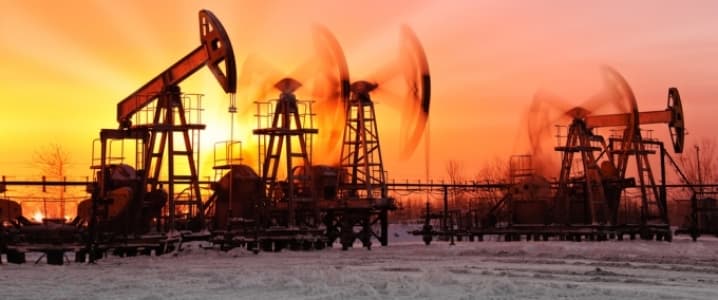Russian President Vladimir Putin is keen to reach an agreement with OPEC to freeze oil production in hopes of prices regaining strength. With the U.S. shale boom supplying most of North America, OPEC has increased production to maintain their market share. This has caused massive price reductions, putting many countries at a loss. Two years ago crude oil was priced at around $100/barrel, but in today’s inundated market it rests below $50.
Russia is struggling economically, as it leads the world in energy exports and oil comprises 40 percent of its revenue. The country is considering tax reforms on oil companies, potentially hurting the industry further. This could lead to job cuts and shutting down of decade old wells. President Putin is determined to repair his nation’s economy.
“I would very much like to hope that every participant of this market that’s interested in maintaining stable and fair global energy prices will in the end make the necessary decision,” said Putin.
Iran’s sanctions were recently lifted, allowing it to reenter the oil market and resume production. World leaders agree that Iran needs to continue growth and shouldn’t be included in this production freeze. To remain at the crippled production level would constrict Iran’s GDP growth, which is now being forecasted as high as 6 percent.
Back in April however, at a meeting in Doha, Prince bin Salman of Saudi Arabia complicated talks by expressing a desire to include Iran in the freeze. This halted the deal and more talks will be necessary before moving forward. Related: Can Norway Supply Europe With Gas Long-Term?
Saudi Arabia sees Iran as a competitor. If Iran is able to restore production to a level that is similar to that of before sanctions were imposed, Saudi Arabia could stand to lose some of its market share. Saudi Arabia produces over 10 million barrels/day and continues to steadily grow. Last month they set a record of 10.69 million barrels/day. Iran has been fixed at a level just below 3 million barrels/day but has quickly regained a footing. As of August Iran was producing 3.6 million barrels/day, an impressive amount having only been without sanctions since January.
The majority of OPEC countries are in agreement that Iran should not halt oil production. Seeing as this was a last minute change of heart, Putin believes Iran is only a minor setback and the deal will ultimately occur. OPEC is to have further informal talks on September 27th. President Putin plans to discuss the matter with Prince bin Salman at the G20 summit in China this week as well. Related: Limited Spare Capacity Could Lead To An Oil Price Spike
Other OPEC members such as Iraq, Nigeria and Libya are debating whether or not to halt production. A freeze doesn’t offer many incentives and will result in a cut in revenue and increase in the unemployment rate. Terrorist groups have been attacking many pipelines, specifically in Nigeria, making production difficult as it is. They’re too focused on restoring oil flow and raising revenue to be freezing levels. If Iran is allowed exemption it’s likely they will break off from the deal as well. These nations need to agree or the efforts of OPEC will be null.
If OPEC is successful in halting production, this could cause a price surge in crude futures. The organization is mostly in agreement aside from a few Middle East and African nations. If Putin is able to change the Saudi’s mind about Iran then talks will likely continue.
Brent crude oil futures currently rest at $46.83 and would rise significantly for a prolonged period if a production freeze were to occur. Investors should buy these futures prior to the next relevant OPEC meeting. According to OPEC, they produced 33 million barrels a day in July, a number that grows by several hundred thousand each month. Since 2014, when crude oil was at $100/barrel, OPEC and the United States combined have roughly raised production by 4 million barrels/day. If OPEC were to cap overall production levels at 33 million bpd the price of crude oil would likely rise 20 percent or more. Investors should bear this in mind as they make decisions on the space in the next few weeks.
By Michael McDonald of Oilprice.com
More Top Reads From Oilprice.com:
- Major Oil Indicator Reaches Lowest Level Ever Recorded
- Expert Commentary: Traders Turn A Blind Eye To OPEC Rumors
- Oil Prices Edge Lower As Output Freeze Hopes Fizzle Again


















